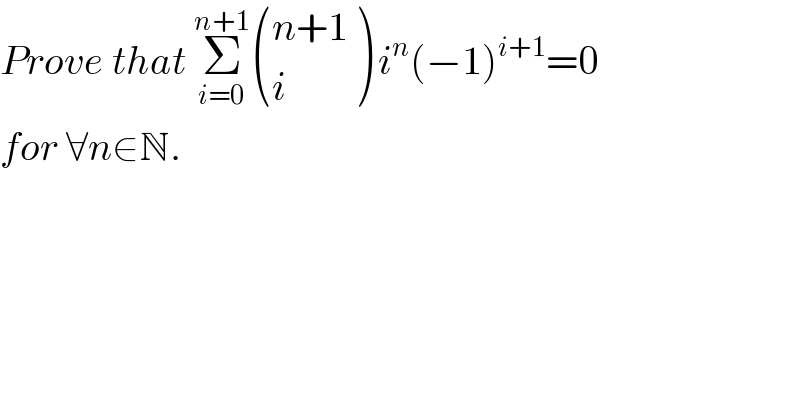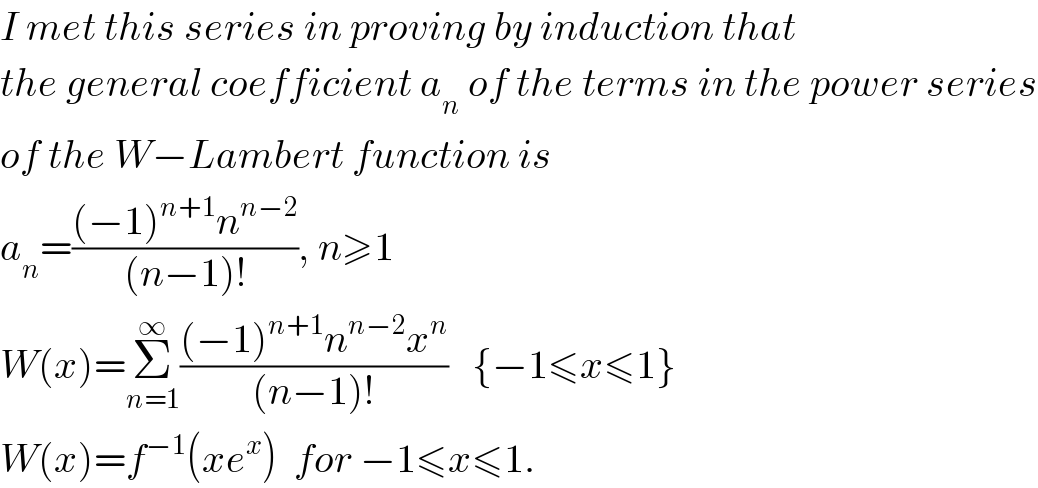
Question and Answers Forum
Question Number 7861 by Yozzia last updated on 21/Sep/16

Commented by FilupSmith last updated on 22/Sep/16

Commented by prakash jain last updated on 01/Oct/16
![f(x)=(1−e^x )^(n+1) =−Σ_(i=0) ^(n+1) ^(n+1) C_i e^(ix) (−1)^(i+1) f^n (x)=−Σ_(i=0) ^n ^(n+1) C_i i^n e^(ix) (−1)^(i+1) =required expression at x=0 Also f(x)=(1−e^x )^(n+1) =LHS f ′(x)=−(n+1)(1−e^x )^n (−e^x ) f^2 (x)=−[(n+1)(e^x )(1−e^x )^n −(n+1)ne^x (1−e^x )^(n−1) (−e^x )] ⋮ f^n (0)=0 [∵(1−e^x ) is factor till n^(th) differentiation] hence −Σ_(i=0) ^n ^(n+1) C_i i^n (−1)^(i+1) please check](Q8109.png)
Commented by Yozzia last updated on 30/Sep/16

Answered by prakash jain last updated on 22/Sep/16

Commented by Yozzia last updated on 22/Sep/16

Commented by Yozzia last updated on 22/Sep/16

Commented by prakash jain last updated on 22/Sep/16

Commented by FilupSmith last updated on 22/Sep/16

Commented by prakash jain last updated on 22/Sep/16

Commented by Yozzia last updated on 22/Sep/16

Commented by prakash jain last updated on 30/Sep/16

